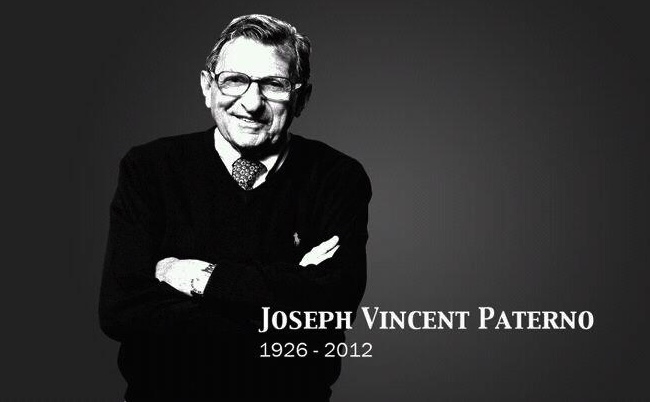Something happened this weekend in the marketing world that made me change my planned topic for this week.
Trey Pennington, a well-liked social media & marketing personality, killed himself Sunday after sending out this final tweet:

Suicide is never the answer. Unfortunately, for people in a deep depression it often seems like the only solution.
I’m not going to pretend I knew Trey. I didn’t. I only knew him online, tweeted back and forth a few times. But I can tell you, from the interactions I did have with him, he was a genuinely nice and seemingly positive guy.

Look at his Twitter stream, does he sound like a guy about to kill himself? No. That’s exactly the point. There is no standard suicidal person, and that’s often why suicidal depression is so hard to detect. It’s also why we need to talk about depression and suicide more—to help prevent more suicides and encourage people to ask for help and help each other. So, I hope you don’t mind, but this is my subject today.
Dealing with depression
“Depression” is one of those misnomers like “cramps” when talking about PMS symptoms—only much worse because it’s so dangerous. How many times have you heard someone say something like, “I’m so depressed because my favorite show was canceled” or “Stop, you’re depressing me”? Depression is not as easy as that. Clinical depression is a very serious illness. It’s as insidious and as brutal as cancer.
Suicide kills more than 34,000 people each year, and for every suicide death there are 11 more attempted suicides. (Source)
Think of depression more like a sort of suffocation. It’s this deep, dark tunnel in which it becomes hard to breathe and function, and for each person the length of it varies. You can’t see the end. In fact, you can’t see much of anything past a foot or two in front of your face, and traveling through it is so lonely, life-sapping and sharply painful that eventually you feel compelled to create your own end. You can’t see any other way out.
The selfish misperception
After Trey’s death, I saw some tweets saying how selfish Trey was to kill himself. I’ve heard people say that many times when suicide came into conversation.
I get it. I get why people feel that way, especially if the person had kids. My cousin had two kids when she killed herself. My friend’s wife had three kids when she killed herself. It seems very selfish from the outside, from our easy seats outside of depression. But I can tell you that a person who kills herself usually honestly believes that the world—even her young, vulnerable kids—will be better off without her. The pain is so brutal and blinding that the person cannot see outside that pain.
My friend’s wife suffered tremendously for years with depression. She reached out for help and tried so very hard to get better. She had a loving husband and family that tried to help, many friends that tried to help, numerous doctors that tried to help and the monsignor at her church tried to help. Most people don’t have that much support, yet she still didn’t make it.
I don’t think she wanted to hurt anyone. She might not have even wanted to die. She just couldn’t take the pain anymore and truly thought death was the only way out. That’s not selfish, it’s sad.
Anger and blame
The rush of emotions you feel when you learn of a loved one’s suicide is unlike almost any other death, except maybe murder. Not surprising, because that’s really what suicide is—murdering oneself. So know that it’s okay to be angry. Go ahead and get all that anger out. Trust me, you don’t want to keep it inside.
I remember being in tennis class in college the day after I learned of my friend’s suicide. My fist clenched so tight around the racket in my hand and every time I hit the ball I really wanted to hit the ground instead. I could almost feel myself smashing that racket into the ground over and over again and screaming—nothing in particular, just screaming. Instead, I asked to be excused from class and walked home. I ran into a roommate who was also headed back to our apartment, and I tried to say something, but I think I was just so afraid of what all that emotion would do to me or what it would do to others around me if it came out, that I stayed quiet. Don’t stay quiet.
And don’t blame yourself. I blamed myself for years after my friend killed herself. I saw her right before I went back to college and before she went to hers. I knew something wasn’t right. I wanted to hug her (and at the time, I wasn’t a very huggy person). But I didn’t. I asked her if she was okay, but she had people waiting for her and didn’t have time to talk. She gave me only a small bit of info, and then I said the dreaded trivial, meaningless words, “Don’t worry, you’ll be back at school soon. Things will get better.”
A person considering suicide cannot comprehend that things can get better. They’re past that point. But, even if you say all the right things—and here’s the really sucky part—that person still might kill herself. It’s very tough to convince yourself of this amidst overwhelming grief, but keep repeating it—this is not your fault.
There are only two things you can do for a suicidal person (and this still might not save him or her):
- Listen, without judgment, and be supportive in your words and actions.
- Get him or her to professional help as fast as possible.
Instead of blaming yourself, learn from this. Next time you have an inkling that your friend or wife or brother may be depressed or thinking of killing him- or herself, trust your instinct. Resolve to be brave and ask your loved ones the scary questions—Are you depressed? Are you thinking of killing yourself?
Yes, the answers might be scary, but you don’t have a chance of helping them if you don’t ask.
Recovery
You cannot focus on the “if only…” and recover from grief. And, if you get stuck in this part or the anger portion of your grief for too long, seek professional help for yourself. The way the person ended his or her life will stick with you for a long time, so the key to getting to the other side of your grief is to start focusing more on the life, the person, not the mode of death.
Everything you feel is valid and you must allow all your feelings to come out in some way. For me, I write. After my friend died, I wrote a play about suicide. For you, it might be talking with friends, working in your garden, training for a marathon, or painting. Only you know what will help. I know it won’t be easy, but I also know you can recover from pretty much anything. You just have to focus on recovering—over and over and over again.
Remember that your loved one was in pain, pain you can hardly even imagine. And hope that he is finally at peace now. Have compassion for him and have compassion for yourself as you go through this very difficult time.
And don’t stay quiet.
***************
To Trey’s family and friends, my heart goes out to you and I wish you well as you try to cope with life without him. And for anyone thinking of suicide, call the National Suicide Prevention Lifeline at 1-800-273-8255 or visit their website for resources to get help.





















You must be logged in to post a comment.